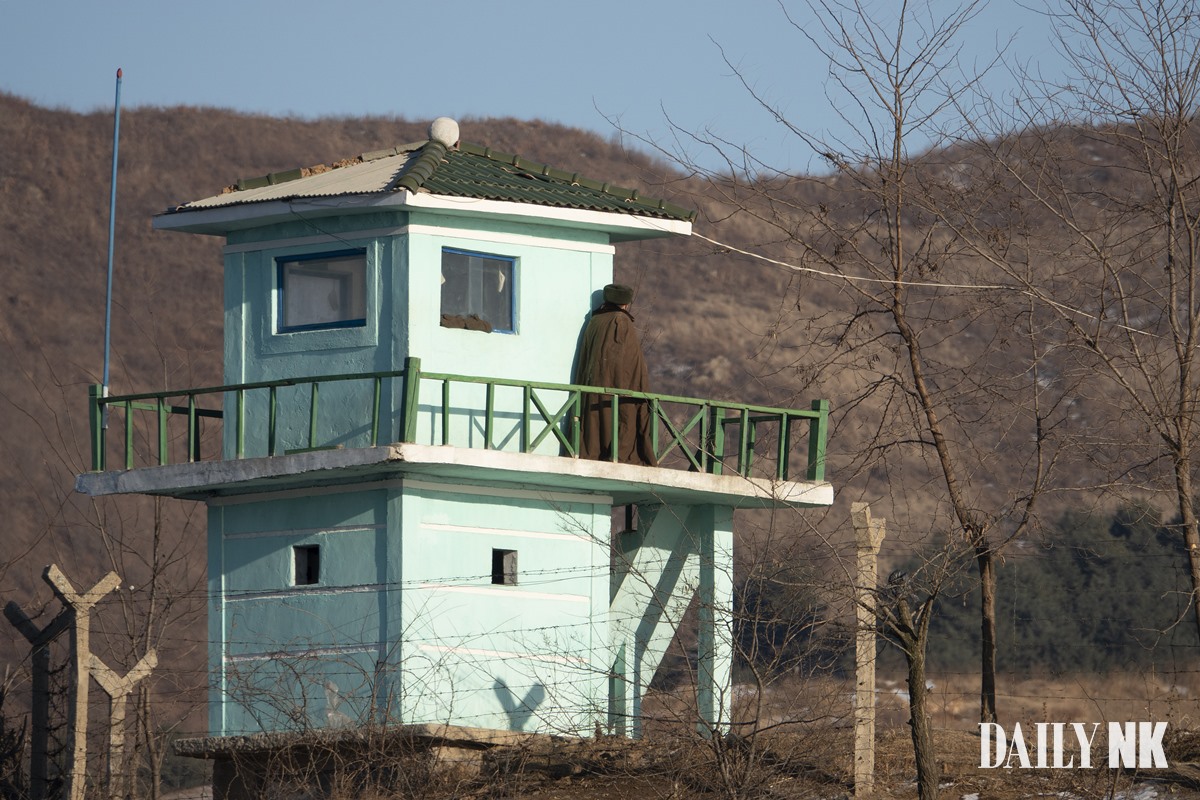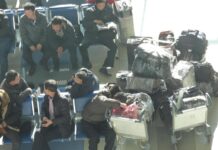Faced with miserable food conditions, members of the so-called “Storm Corps” (11th Corps) on long-term deployments to the Sino-North Korean border have gone beyond robbing private homes to pilfer even the food stores of government agencies.
A source in North Hamgyong Province told Daily NK on Friday that with the Storm Corps deployed to the border for such a long time, the unit was growing “ideologically complacent and lax” and poor food supplies were causing “further problems.”
“They’re not connected to Chinese traders like the border guard, so they rob people,” he said. “And now they’re even robbing the logistics facilities of state agencies.”
The source said the Storm Corps receives food, but the quality of the food has gradually worsened the longer it stays at the border. “If the relationship between the troops and civilians was good, they could get help from locals,” he said. “But even this relationship has been greatly damaged. And they don’t have side jobs, so if food supplies are lacking, they have to make due on their own. Being unable to do anything else, they’ve ultimately turned to robbing state institutions.”
According to the source, three soldiers from the Storm Corps broke into the local branch of the Ministry of State Security in Hoeryong to rob its warehouse earlier this month. However, they were reportedly caught at the scene after being discovered by staff on patrol and ultimately discharged from the military.
Moreover, their battalion commander, political guidance officer and security guidance officer were relieved, and their battalion was withdrawn by the middle of the month and replaced by another, said the source.
The source said the incident was mentioned in lecture materials from the Central Military Commission distributed on Aug. 15. Condemning the robbing of state institutions as a “serious” crime, the Central Committee used the incident to raise the alarm against “irregular” phenomena emerging in border regions.
Accordingly, there are growing calls in North Korea for the urgent withdrawal of the Storm Corps. However, with work to build a concrete fence and high voltage wires along the border running into problems due to insufficient supplies, the special forces unit could be withdrawn even later than initially planned.
The Storm Corps’ commanders reportedly believe the unit should be withdrawn at once. They say the longer the unit remains deployed at the border, the more difficult it becomes for it to train for its main combat mission – namely, sowing “disorder in the enemy’s rear.” They also worry that ideologically lax soldiers could desert and defect.

However, the source said that while electrical transformers have to be installed at all lengths of the border, the state is failing to provide them. Instead, the government is telling provincial party, government and military organizations to provide them “through self-reliance,” so work on the wall and high-voltage wires will apparently be delayed even further.
“The Storm Corps can only withdraw once [the transformers] have been installed, but if these devices aren’t supplied, it won’t be easy for the unit to withdraw,” he said.
North Korea ordered the border wall and wires be completed by Party Foundation Day on Oct. 10. Accordingly, a joint inspection team from the Central Committee, Cabinet and Ministry of State Security plans to visit the four border provinces (North Pyongan Province, Chagang Province, Yanggang Province and North Hamgyong Province) from Oct. 1 to Oct. 10 to evaluate the work done so far. The source said if the inspection team gives the work a failing grade, the withdrawal of the Storm Corps will be delayed.
Meanwhile, local mistreatment of the unit is growing worse, as is the Storm Corps’ turf war with the border patrol.
The source said Storm Corps troops complain that they “can’t even get a bowl of water from the people,” and that border residents treat them like a “posse” with no business being there, despite having come “to do the nation’s work.”
In fact, shop owners along the border either pretend they have no goods or raise their prices when they see Storm Corps troops, and most merchants refuse to sell to unit personnel on credit.
The source added that border residents who made their living from smuggling are “very hostile” to the Storm Corps, blaming them for their current woes, and that troops from the unit will face difficulties adjusting to life in the area going forward as well.

















